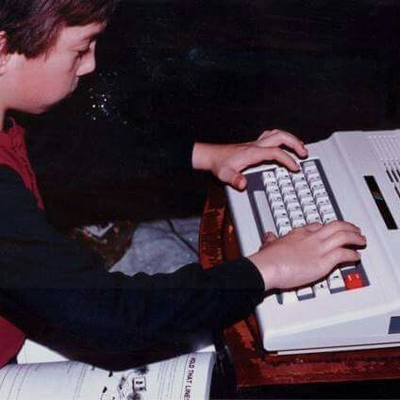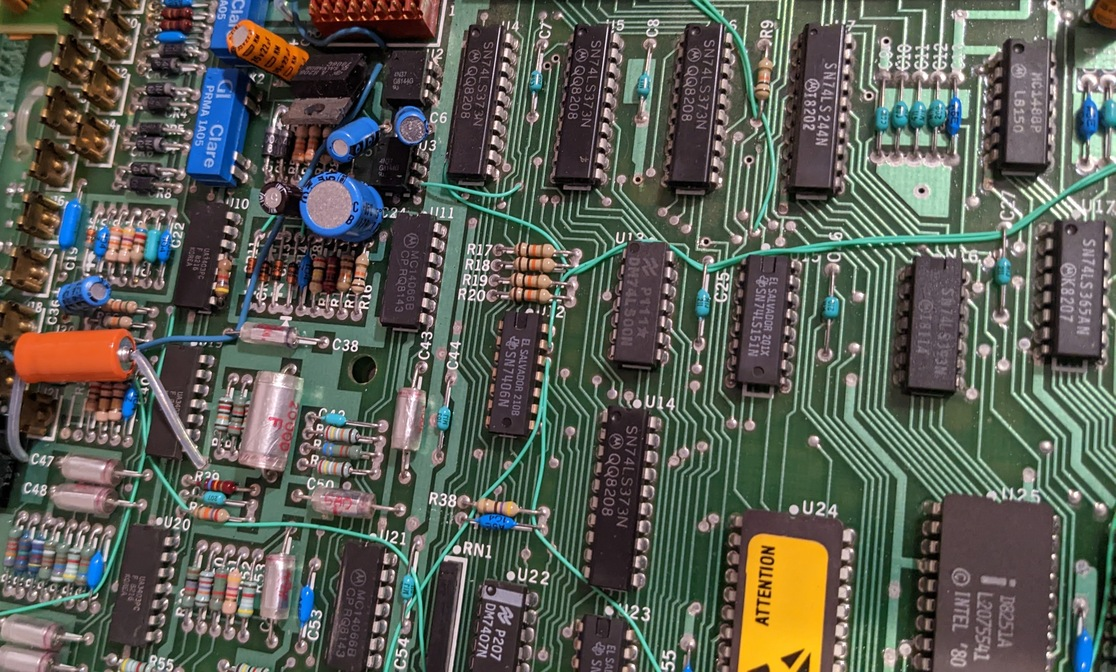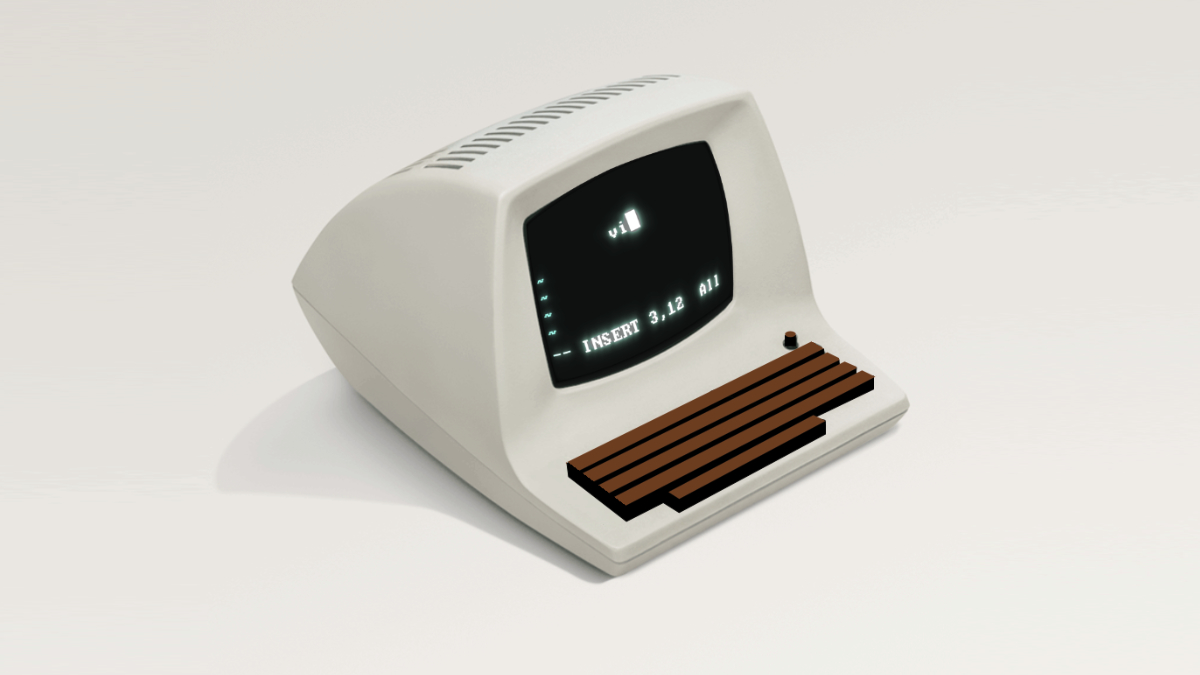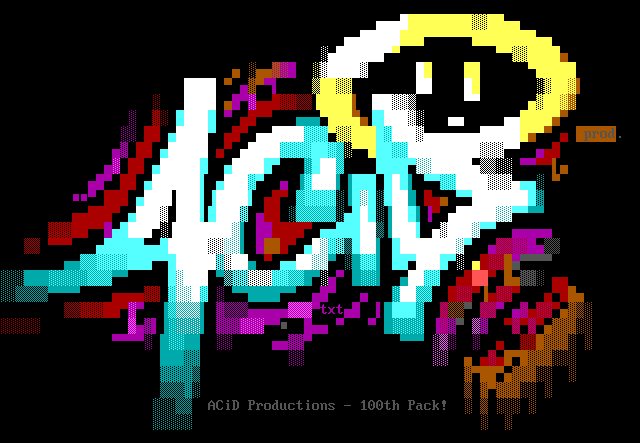Yeah it makes sense - and even now that isn’t an issue, I feel like the ability to “program” your edits is still a great interface for productivity.
Nathan Byrd
I am a retro computer and bbs/early internet fan who does information security work as a day job. I am a bit of a retro-generalist though I do tend toward systems that I had or used growing up and starting my career. #tandy Color Computer, #commodore, #apple, but especially early PC.
- 5 Posts
- 21 Comments
Managed to get it archived. Enjoy!

 5·1 year ago
5·1 year agoThis is a great question with no definitive answer 🙂 There are a number of ways of looking at it, though the ultimate answer is whatever each person considers retro. A few general ways to look at it include:
-
whatever was around when you were a kid. Of course, this depends wildly on who you are asking - for me this would include the Tandy Color Computer / Commodore 64 era through 486 PCs (or so.) For other people this could be a little older or much newer of course.
-
Some fixed definition like (anything before the year 2000 or no PCs etc.) I’m not a huge fan of this personally as it leaves some people out.
-
Any computer old enough that a single person could fully understand it’s workings and diagnose/repair problems etc. This generally includes 8 and some 16 bit systems. I’ve increasingly come to prefer this view because beyond nostalgia it also helps define something that I believe is a significant benefit to these systems.
-

 1·1 year ago
1·1 year agoFantastic stuff. Unfortunately I don’t know enough to help but you may want to try to catch up with Inverse Phase: https://www.inversephase.com
He is a super nice person and is more knowledgeable about that sort of thing than anyone I’ve met. I’ve run into him a couple of times a VCF Midwest and always learn something new.
It’s a lot easier to get into then it used to be! Most BBS systems support connecting over the internet using the telnet protocol. Some of them you can connect to right off their web page.
You can find everything you need over at the telnet bbs guide:
https://www.telnetbbsguide.com
There are BBS listings there, as well as a handy guide:
That does look like a happy Mac! I used to help support machines a lot like this for the teachers at my high school, kept me from having to do as much school work lol.

 2·1 year ago
2·1 year agoIt’s funny, I thought that would be a quick google search away, but I wasn’t able to find anything about that either. Unfortunately my Gotek is setup on a Compaq Portable 1 and I can’t use anything other than 360k floppies with it anyway, so I can’t test it out either. I would expect that it should “just work”, but can’t tell you for sure.
However, besides just trying it out or if anyone else knows, a couple of other things that might help you:
Dual drive support with a single Gotek (very much a WIP, but looks like it’s partially done): https://kivijakola.fi/projektit/2023/02/26/gotek-flashdisk-dual-drive-support/
Making a DOS image from Linux: https://askubuntu.com/questions/484308/create-floppy-images - my thought here is that you could make a dos 1.44mb image, mount it and a smaller 360k or whatever image, and then copy the contents to the larger 1.44mb image. You should be able to do something similar in Windows with software such as PowerISO etc.
Finally, if nobody else has a solution before then please update us when you try it out, this would be great to know.

 2·1 year ago
2·1 year agoWow I wish I would have known about this in time to order the hardcover, that looks like a beautiful book. I’ve grabbed the electronic version, but I really hope there will be a reprint as well.

 2·1 year ago
2·1 year agoDriveWire is still very much a thing - the original hasn’t been updated in quite some time, but the new software to do this is called pyDriveWire:
https://github.com/n6il/pyDriveWire
You need a cable to connect between the coco and the computer:
https://www.cocopedia.com/wiki/index.php/How_to_build_a_DriveWire_serial_cable
http://colorcomputer.net/serialcable.php
I’ve found them for sale every now and then as well, though they are pretty easy to make too.
You’ll also need to load a Drivewire capable DOS (like HDB-DOS.) You can get a cartridge that does it or even load it from tape / audio.
Once you get it going though Drivewire (or pydrivewire) has a ton of features and is a lot of fun to play with.
Let me know if you have any questions or problems.

 6·1 year ago
6·1 year agoGotta mention AGD Interactive and the free Sierra games remakes with many improvements!
Absolutely. I’m dropping off of Reddit as soon as Apollo is no longer supported (on the 30th.) Before then I plan to wipe all my posts / content - I don’t really want Reddit to profit more off of my content then they already have by selling it to LLMs etc. I hope more people join and move over. There is a bit of a learning curve here but I’m sure that will improve over time.
Will do, I just got the greaseweazel, power supply and microcontroller I just need to find a compatible drive (and figure out how to actually use greaseweazel lol.) Of all the retro things I have, I can’t believe I don’t have a working 3.5" drive lol.

 1·1 year ago
1·1 year agoVery nice work! Do you happen to have a link to where you found this? An archive of old stickers would be fantastic to hold onto.

 2·1 year ago
2·1 year agoundefined> up in the 70’s & 80’s. My first computer experience was the Atari Pong console, but my first real love was the Commodore 64. I would buy up all of the C64 magazines I could, especially if they had the game code article where you could type in the machine code to make a game. Machine code. I don’t think I ever saw a BASIC game article; it was always machine code. I would spend days trying to get that code typed in correctly to play the game, and I’d usually be disappointed in it.
The first real game I became obsessed with was Telengard, a BASIC game I bought on C64 cassette that was a basic dungeon crawler kind of like the old mini computer game DND. I spent months figuring out how the game worked … and then I spent months figuring out how the BASIC code worked and how to tweak it to give me a ton more treasure. I had tapes and tapes of
I got to meet Nybbles and Bytes at a VCF Mid-West conference! She was super nice. She suggested that I get a Commodore 128 DCR, which has proved to be really hard to find. Still looking though. I recommend her videos to anyone looking to learn more about Commodore programming.
Ah got you, I actually have one for my MiSTer - using it with real vintage hardware sounds amazing though. The prices of the real MT32’s are such that I can’t really justify getting one (well, until I find one at a good deal anyway :) ) Having a MT32-PI is nearly as good for a lot of cases though.

 1·1 year ago
1·1 year agoLike many on here, Zork was my first adventure game, and King’s Quest 1 my first graphical adventure game. Interestingly, growing up I really only played the Infocom and Sierra games, the LucasArts games somehow completely escaped me unfortunately.
Also check out shopgoodwill.com - it takes a while to find good searches (for this I like “vintage computer”) but there are often systems and parts on there. Right now I don’t see a 486 (though there often is) but I do see an Aptiva, XT clone, a couple of 386 laptops etc. You can also sometimes find parts, like if you do a search for “graphics card”, though you’ll have to go through the results yourself to find a good VLB card. Another good search for components is to go to the Computer Components category and search for “vintage”.
Prices are all over the place, just depends if someone ends up bidding against you. Even when that happens I don’t mind quite as much on there though since I figure at least the money is going to charity.
I hope you do another post just on that Roland MT-32 - I’m still looking for one of those myself they were absolutely amazing.

 0·1 year ago
0·1 year agoThis has come up a lot in the past, and the best I’ve been able to come up with is that what is “retro” varies with every retro enthusiast. A couple of definitions that I’ve heard:
- Retro is the computers you used as a kid. Leaves just about everything as “retro” to someone, but probably the best definition I’ve found anyway
- Any computer simple enough to be completely understood by an enthusiast. Older computers that came with full schematics fit into this category, and helps define the appeal of retro computers. It does leave out a lot of systems that younger generations would consider “retro” though.
- Some specific year cutoff (say 1990 or something.) Definitely the least flexible definition and one that I’m not a huge fan of.
- Based on architecture. 16-bit and older, or everything before the IBM PC etc. Again this isn’t a very flexible definition either, but has been used in the past by some (including by VCF-MW, though this has changed)





I remember that well. We used DESQView to run our BBS as well. It was only a single line system, but DESQView let us do other things on the computer without taking down the board.
Has anyone played with TriDOS? https://github.com/prokushev/tridos - it doesn’t look nearly as featured, but has the advantage of being open-source and I thought might be interesting for a project I have in mind.